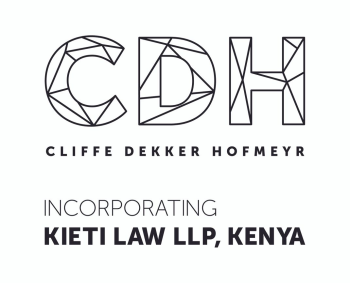On January 24 2018 the South African Revenue Service (SARS) issued Binding Private Ruling (BPR) 291, which addresses the taxation of subsistence allowances paid by employers to their employees in certain circumstances. The ruling specifically addresses the interpretation of Sections 8(1)(a)(i)(bb) and 8(1)(c) of the Income Tax Act (58/1962).
Proposed transaction description
The applicant in BPR 291 is a South African resident employer. Regarding the applicant's subsistence and travel policy, employees who must spend at least one night away from their usual place of residence on local travel for business purposes receive an amount from the applicant in respect of meals and incidental subsistence expenditure. The amount is equal to 80% per night of the prescribed maximum daily amount determined and published by SARS in the Government Gazette in respect of meals and incidental costs under Section 8(1)(c)(ii) of the Income Tax Act. The applicant arranges and pays for the accommodation separately and in some cases the price of accommodation includes meals. The applicant pays 80% of the gazetted amount, regardless of whether the price of accommodation includes a meal.
Under Section 8(1)(a)(i)(bb) of the Income Tax Act, where an amount has been paid or granted to a person by his or her principal as an allowance or advance during a year of assessment, that amount must be included in the person's taxable income, excluding any portion actually expended by the recipient on accommodation, meals and other incidental costs as contemplated in Section 8(1)(c), while such recipient is obliged to spend at least one night away from his or her usual place of residence in South Africa because of office or employment duties.
Section 8(1)(c)(i) states that for the purposes of Section 8(1)(a)(i)(bb) the recipient will be deemed to have actually expended the amount of the expenses that he or she incurred in respect of provable accommodation, meals or incidental costs. This amount is limited to the amount paid or granted to the recipient in order to cover those expenses.
Section 8(1)(c)(ii) states that for the purposes of Section 8(1)(a)(i)(bb) a recipient is deemed to have actually expended for each day or part of a day while he or she was absent from their usual place of residence an amount as SARS may determine by way of notice in the Government Gazette in respect of meals and other incidental costs, or incidental costs only. The recipient's expenditure is limited to the amount paid or granted to meet those expenses. The Section 8(1)(c)(ii) proviso states that the section does not apply to the extent that the employer has borne the expenses in respect of which the allowance was granted or where the recipient has proved to SARS any amount of actual expenditure in respect of meals or incidental costs for that day or part of that day as contemplated in Section 8(1)(c)(i).
Based on the abovementioned facts and legal provisions, SARS ruled as follows:
- An amount paid by way of an allowance in terms of the policy which is less than the gazetted amount contemplated in Section 8(1)(c)(ii) will fall within the deeming provisions of Section 8(1)(c)(ii) only when the applicant has not borne any of the expenses in respect of which the allowance is paid.
- If the applicant bears any of the expenses in respect of which the allowance is paid, the maximum amount deemed to be expended under Section 8(1)(c)(ii) will be the gazetted amount minus the expenses borne by the applicant. For example, in determining the maximum amount that will be deemed to be expended under Section 8(1)(c)(ii), the gazetted amount must be reduced by the breakfast fee when the accommodation paid for by the applicant charges breakfast separately.
- The applicant must retain documentary proof in the form of invoices of his or her expenditure in order to establish the reduced deemed amounts as contemplated in Section 8(1)(c)(ii).
- BPR 291 does not apply to:
- employees who accept permanent work-related assignments for extended periods (eg, off-site workers); or
- subsistence allowances for travel outside South Africa.
BPR 291 appears to offer guidance regarding the application of Section 8 of the Income Tax Act and suggests that employers may have some leeway in structuring the subsistence allowances that they provide to their employees; however, it is only binding on the employer and employees referred to therein.
For further information on this topic please contact Louis Botha at Cliffe Dekker Hofmeyr by telephone (+27 115 621 000) or email ([email protected]). The Cliffe Dekker Hofmeyr website can be accessed at www.cliffedekkerhofmeyr.com.
This article was first published by the International Law Office, a premium online legal update service for major companies and law firms worldwide. Register for a free subscription.



